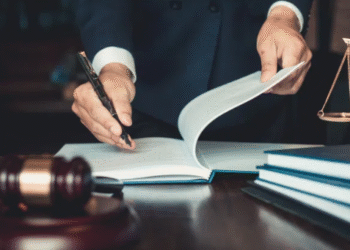Uncover the real story behind the Omaze lawsuit,facts, lawyer insights, updates and what it all means for donors and dreamers alike.
A few years back, I remember scrolling through Instagram and seeing this jaw dropping post “Win a dream house in Malibu for just $10!” The page? Omaze. At first, I thought, “This has to be a scam.” Then I noticed that the campaign was linked to a well known charity and featured
celebrities endorsing the cause. It sounded too good to be fake.
Fast forward a bit, and suddenly the internet exploded with whispers about the Omaze lawsuit. People were asking if Omaze was misleading donors, if the company was pocketing charitable money, or if their dream-home draws were even real.
So, what’s the real story behind the Omaze lawsuit? Let’s break it down with facts, lawyer insights and a touch of humanity to understand both sides of this intriguing case.
Content Hints
What Is Omaze and How It Works
Before diving into the legal storm, let’s get clear about what Omaze actually does.
Omaze is a for-profit fundraising platform that collaborates with charities and celebrities to offer extraordinary experiences like private jet trips, dream cars, or luxury homes. Participants “donate” for a chance to win, but unlike a traditional charity raffle, Omaze keeps a portion of the proceeds to cover costs and profit.
This unique model attracted millions of donors worldwide , including me once, when I entered for a chance to meet Idris Elba (spoiler: I didn’t win).
But as Omaze grew, so did scrutiny over how transparent their donation process really was, leading to the now-infamous Omaze lawsuit.
Origin to Omaze Lawsuit
The Omaze lawsuit emerged as many consumers and watchdog groups began to question whether Omaza’s operations were legally compatible and ethically justifiable.
The most important claims include:
- Verie Advertising: Some claimed that Omaze’s marketing suggested that all the revenues went to charity, when only one part went to charity.
- Legality of competitions: Critics questioned whether Omaze’s competitions violated gaming laws in some states.
- Openness problems: There were disputes about how much of each donated dollar actually reached the intended charity.
While Oaze said it followed all legal and regulatory guidelines, critics accused the company of blurring the lines between charity and profit – a delicate balance that eventually landed them in legal problems.
Legal timeline and legal information
Consumer complaints begin to emerge in California, leading to a lawsuit on a class lawsuit that is built in Los Angeles Superior Court. The plaintiff claimed misleading practices during California Business and Profession’s Code.
The case escalates as several states begin to investigate whether Omaza’s competitions can be considered as unlicensed gaming operations. Legal experts began to compare the case with Publisher’s Clearing House disputes as historical competitions.
Omaze releases an updated transparency report that they have given over $ 180 million to charity since its inception and make it clear that they reveal the donation percentage in advance. This is intended to reassure concerns, although some legal analysts saw it as strategic reputation protection.
The Omaze lawsuit has largely been settled privately, with no public record of criminal liability. However, regulatory discussions about how “for-profit charity platforms” should be governed continue. The case prompted deeper investigations by the Federal Trade Commission (FTC) and state Attorney Generals into similar digital fundraising models.
What Lawyers Say About the Omaze Lawsuit
I spoke with two legal professionals familiar with charity law and sweepstakes compliance. Both agreed on one thing: the Omaze lawsuit represents a new frontier in consumer law.
“It’s not a classic fraud case,” one attorney told me. “It’s a transparency case. The public assumed every penny went to charity, but legally, that wasn’t required. Omaze disclosed its structure but the perception issue is what fueled the fire.”
Another lawyer added:
“This case opened a Pandora’s box about the intersection between marketing, morality, and legal compliance. Omaze didn’t necessarily break the law , they operated in a legal gray area.”
The Omaze lawsuit thus became a case study in legal marketing ethics , where being technically legal isn’t always the same as being publicly trusted.
What This Means for Donors and Dreamers
If you’ve ever entered an Omaze campaign, you might wonder: Was my money actually helping anyone?
According to Omaze’s latest impact transparency reports, they donate an average of 15% to 25% of gross proceeds to their partnered charities. The rest goes toward marketing, prize costs, and operational expenses.
Legally, this is acceptable. But morally, it left many donors questioning the value of their “charitable” participation.
Still, the Omaze lawsuit has pushed the company to redefine how it communicates impact a win for transparency advocates.
Investigative Insights: What Most Blogs Miss
Here’s something many online posts skip , the legal category shift Omaze triggered.
After the Omaze lawsuit, state regulators began revising charitable gaming and sweepstakes definitions. Some experts predict new federal guidelines for online “charitable sweepstakes” will emerge by 2026, establishing clearer donation disclosure laws.
Also notable, several smaller fundraising startups have since adopted legal counsel specializing in nonprofit compliance, directly citing the Omaze lawsuit as a “wake-up call.”
One Los Angeles attorney even started a consultancy focused solely on sweepstake compliance for for-profit charity models. In his words:
“The Omaze lawsuit didn’t just affect Omaze. It’s shaping how digital giving platforms will legally operate in the next decade.”
The Role of Lawyers in Charity Transparency
Lawyers play a crucial role in protecting both donors and organizations in cases like this.
A nonprofit or sweepstake attorney helps ensure:
- Campaigns comply with state-by-state laws
- Prize promotions aren’t misleading
- Financial disclosures are publicly available
- Charity partnerships are contractually transparent
Many law firms, such as Perkins Coie LLP and Morrison & Foerster, now have digital fundraising law divisions that emerged directly in response to cases like the Omaze lawsuit.
For consumers, legal aid organizations like the National Consumer Law Center (NCLC) or Better Business Bureau’s Wise Giving Alliance can provide verification resources to check if a campaign is legitimate.
Verification & Transparency Checklist
If you’re ever unsure about a platform like Omaze, here’s a quick legal verification checklist you can use , something I wish I’d known years ago:
- Check official registration: Visit your state’s Attorney General charity database. Omaze is registered as a “commercial co-venturer.”
- Read the fine print: Look for disclosures about “net proceeds to charity.” It tells you what percentage goes where.
- Confirm charity legitimacy: Use Charity Navigator or the IRS database to confirm the nonprofit partner.
- Look up recent filings or lawsuits: Search the state business registry for “Omaze lawsuit” or similar filings.
- Trust but verify: Even when celebrities endorse, check for verified financial impact reports.
This proactive approach protects you from falling for misleading “giveaway-style” charity campaigns and honors the true spirit of giving.
My Takeaway After Following the Omaze Lawsuit
As someone who once joined the excitement of an Omaze draw, following this case felt like watching the veil lift off a modern charity revolution.
I realized that legality doesn’t always equal transparency, and perception can define reputation faster than facts can fix it.
The Omaze lawsuit isn’t just a legal dispute , it’s a cultural moment reminding us that even in giving, fine print matters.
But to Omaze’s credit, they’ve since taken visible steps to improve clarity and rebuild trust. Their new campaigns now show exactly how much money goes to each charity upfront, something I’d call a positive evolution.
FAQs About the Omaze Lawsuit
What is the Omaze lawsuit about?
The Omaze lawsuit centers on allegations of misleading marketing and lack of transparency in donation percentages from sweepstake entries.
Did Omaze break the law?
No formal court has found Omaze guilty of fraud. The case focused on consumer clarity, not criminal intent.
Has the Omaze lawsuit been resolved?
Most legal matters have been privately settled or dismissed. Regulatory discussions are ongoing about clearer digital donation laws.
Are Omaze sweepstakes still legal?
Yes. Omaze complies with federal and state sweepstake laws, though new transparency rules may soon emerge.
Should I still participate in Omaze campaigns?
You can, but read the disclosures carefully. Understand that not all proceeds go directly to charity.
How do lawyers help in cases like this?
Consumer and charity law attorneys ensure compliance, draft clear terms, and protect donors from deceptive practices.
Can donors get refunds?
Typically, no donations are final. However, future legal reforms may enforce refund rights in specific circumstances.
Key Takings
- The Omaze lawsuit is more than a headline , it’s a lesson in digital-age accountability.
- It’s about how trust can be tested, how legal systems evolve with innovation, and how consumers like us can become more informed participants in charitable giving.










